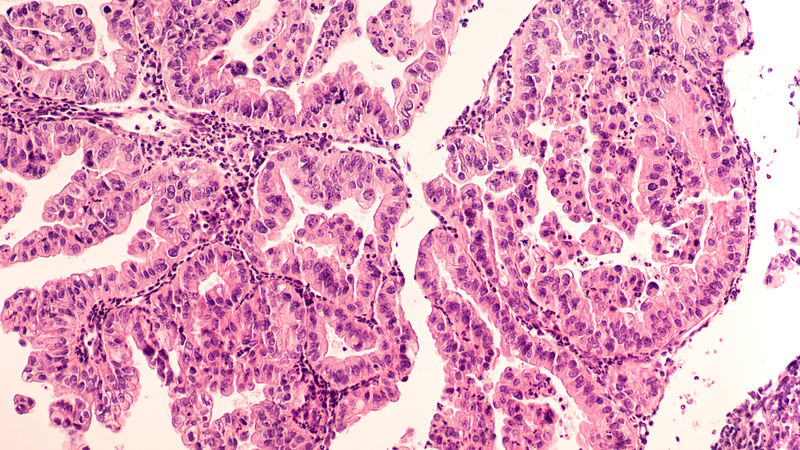Researchers develop 'one-two punch' to destroy cancerous ovarian cells
ANI Jun 14, 2019
Researchers have developed a two-step combination therapy 'one-two punch' to destroy cancer cells.

The study published in the journal 'Nature Communications' showed the superior therapeutic effectiveness of the 'one-two punch' on cells of ovarian cancer patients, based on the manipulation of the state of cellular aging. "In the case of epithelial ovarian cancer (EOC)--the most common and lethal ovarian cancer--we act in two stages. First, we force the cancer cells to age prematurely i.e., we force them into senescence. This is the first therapeutic punch. We throw our second punch using senolysis, destroying and eliminating them. This strategy requires excellent coordination of the two steps," explained Francis Rodier, a researcher at the Universite de Montreal.
The team of researchers, led by Rodier and his colleague Anne-Marie Mes-Masson, discovered that EOC cells enter senescence following chemotherapy in combination with PARP inhibitors. PARPs are enzymes that help repair damage to DNA. By blocking PARPs, PARP inhibitors prevent cancer cells from repairing their DNA, stop them from proliferating and cause them to age prematurely.
"Thanks to our 'one-two punch' approach, we have managed to destroy senescent EOC cells in preclinical ovarian cancer models. Our approach could improve the effectiveness of chemotherapy in combination with PARP inhibitors and counteract the systematic resistance that develops with this treatment," said Mes-Masson, another researcher at the Universite de Montreal. "Our 'one-two punch strategy' was also tested on preclinical ovarian and breast cancer models, which allowed us to validate its effectiveness," commented Mes-Masson.
Although the results of this study will be used to propose clinical trials for ovarian and triple-negative breast cancer, Rodier said that it is important to remember that they used preclinical models in which there was no immune system. "Given the importance of the immune response in humans, we need to continue evaluating our strategy in a context closer to biological reality."
-
Exclusive Write-ups & Webinars by KOLs
-
Daily Quiz by specialty
-
Paid Market Research Surveys
-
Case discussions, News & Journals' summaries